Washington University in St. Louis will award seven honorary degrees during its 158th Commencement May 17.
During the ceremony, which will begin at 8:30 a.m. in Brookings Quadrangle on the Danforth Campus, the university will bestow academic degrees on approximately 3,400 members of the Class of 2019.
Michael R. Bloomberg, 108th mayor of New York City and founder of Bloomberg LP and Bloomberg Philanthropies, will deliver the Commencement address.
Bloomberg will receive an honorary doctor of laws degree from the university.
The other honorary degree recipients and their degrees are:
- Carol B. Bauer, a longtime Washington University benefactor, steadfast volunteer, chaplain and former teacher, doctor of humane letters;
- George P. Bauer, a dedicated alumnus and emeritus trustee of Washington University, philanthropist, financier and head of GPB Group Ltd., doctor of humane letters;
- Theresa A. Carrington, founder of the Blessing Basket Project, now known as Ten by Three, who discovered a formula that sustainably ends poverty and has been successfully replicated in eight developing nations, doctor of humanities;
- Wayne Fields, the Lynne Cooper Harvey Chair Emeritus in English and professor of English at Washington University, renowned author and expert on American presidential rhetoric and political argument, doctor of humane letters;
- Joseph E. Madison, a dedicated Arts & Sciences alumnus, groundbreaking radio personality and human and civil rights activist, doctor of laws; and
- Charles M. Rice III, the Maurice R. and Corinne P. Greenberg Chair in Virology at The Rockefeller University, who developed a lifesaving therapy for hepatitis C virus infection, doctor of science.
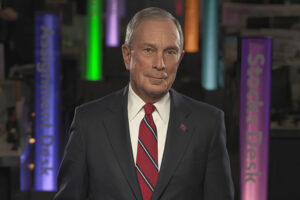
Bloomberg is an entrepreneur and three-term mayor of New York City whose innovations in government and philanthropy have made him a global leader on climate change, public health, education and other critical issues facing America and the world.
Bloomberg was elected mayor just weeks after the attacks of Sept. 11, 2001, and under his leadership, New York City rebounded faster and stronger than expected. His administration raised high school graduation rates by 40 percent, cut crime by a third and reduced the city’s carbon footprint by 14 percent. His economic policies, which supported entrepreneurs, small businesses and emerging industries such as tech and bioscience, helped to create a record 400,000 new jobs. His administration invested more than $3 billion in the arts and in cultural organizations, making New York City the largest funder of the arts in the country.
After leaving City Hall, he resumed leadership of Bloomberg LP, the information technology startup he launched in 1981 that revolutionized the investment industry and leveled the playing field for smaller firms. The company has grown from a one-room office into a global organization that employs nearly 20,000 people at 176 locations in 120 countries.
Committed to philanthropy, he has given away $6.4 billion through his foundation, Bloomberg Philanthropies.
As the U.N. secretary-general’s special envoy for climate action, he is charged with galvanizing the efforts of governments, businesses and civil society to fight climate change. He is also the World Health Organization’s global ambassador for noncommunicable diseases, and his foundation works on lifesaving initiatives to improve maternal and reproductive health, increase global road safety, prevent drowning deaths and more.
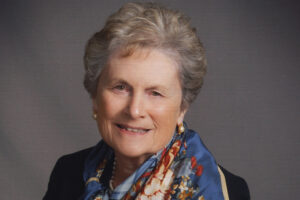
Carol Bauer has spent her life giving to others, with a focus on improving education and health care. She has worked with homebound children with disabilities, managed a home-based nursery school, taught at a nursery school, raised a family, and now serves as a hospital chaplain.
While a student at Harris Teachers’ College in St. Louis and president of the Baptist Student Union, she met her future husband, George P. Bauer, then a Washington University student and vice president of the Interfaith Council. After earning a bachelor’s degree, she taught in St. Louis public schools.
To foster what the Bauers, who live in Wilton, Conn., call the “Sunday/Monday connection,” a term to describe their goal of bridging the spiritual and the secular in their lives, they founded the Bauer Family Foundation in 1989 to benefit others.
She has contributed extensively to nearby Norwalk Hospital since 1978, providing service and visionary leadership. She founded and led the hospital’s Emergency Room Reception Volunteers, a group she remained involved with for 25 years. A member of the hospital’s board of trustees for 19 years, she was the first woman elected chair. After going back to school to earn a certificate in clinical pastoral education, she began volunteering in 2002 as a hospital chaplain.
As chaplain in the hospital’s childbirth center, she is often on call at all hours, offering comfort and counsel to parents whose babies are in the neonatal intensive care unit, as well as to parents whose children have died.
Through their foundation, the Bauers created a Connecticut chapter of the national “I Have a Dream” program, which provides social, emotional and academic support to young people in low-income communities from kindergarten through college, along with guaranteed tuition support.
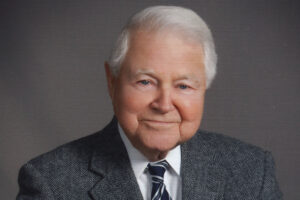
George Bauer launched GPB Group Ltd., an investment banking firm, in 1987 after retiring from a 31-year career at IBM.
Bauer, who grew up on a farm in DeSoto, Mo., and was the first in his family to go to college, received a scholarship to Washington University’s engineering school. With his wife of 64 years, Carol B. Bauer, he has returned that initial scholarship support many times over.
After earning a bachelor’s degree in engineering in 1953 and a master’s in engineering in 1959, he was offered a job with IBM, where he served in executive positions in marketing, finance and business systems, including as chief financial officer of several IBM divisions.
The Bauers are longtime Washington University benefactors, providing scholarships for students and, in 2004, establishing an endowment to provide emergency financial aid to students experiencing unanticipated financial difficulties. They also established the George and Carol Bauer Professorship in Organizational Ethics and Governance at Olin Business School in 2007. In 2011, the Bauer Foundation made a gift of $10 million to provide capital support for Olin’s Bauer Hall, which opened in 2014.
In 2016, the Bauers established the George and Carol Bauer Leadership Center at Olin Business School with a $5 million gift. With this gift, they also established the George and Carol Bauer Leadership Fellows Program. In January 2019, the Bauers made a $5 million gift to establish a named deanship in the School of Medicine. David H. Perlmutter, MD, is the inaugural George and Carol Bauer Dean of the School of Medicine.
Bauer is a member of the New York Regional Cabinet and the Olin Business School National Council.
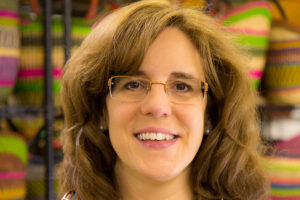
Carrington was inspired to start her organization after experiencing a life-altering crisis. Friends, family and strangers showered her with cards and letters of support. Placing the cards in a basket, Carrington returned to the basket daily, reading the cards and letters and finding strength to face the next day.
Calling it her “Blessing Basket,” Carrington began speaking to women’s groups about overcoming struggle, and as women wanted to purchase one of their own, The Blessing Basket Project® was born. The objective was to help artisans in developing countries sustainably exit extreme poverty.
Over the last 15 years, Carrington and her team discovered the tipping point from extreme poverty to prosperity came when an artisan sold 10 products a month at “Prosperity Wages” for three years. In 2018, The Blessing Basket Project name was changed to Ten by Three®, the formula Carrington and her team discovered ends poverty. It has helped reignite more than 65 local economies across three continents and positively impacted the lives of more than 8,000 people and 32,000 of their family members.
In 2004, she sought the expertise of students in the Olin Business School and the Skandalaris Center for Interdisciplinary Innovation and Entrepreneurship, who helped shape her vision into a solid business plan. That same year, the organization won the Olin Cup entrepreneurship competition, the first nonprofit to enter, and received seed funding to accelerate its growth.
Carrington’s Prosperity Wage® model was also defined with the help of Washington University students. Prosperity Wages guarantees artisans are paid directly at least 2.5 times fair trade, eliminating the middleman. The artisans are required to start at least three businesses with their Prosperity Wages, sustainably lifting them out of poverty. Ten by Three’s Graduate from Poverty model will soon be replicated in three more countries.
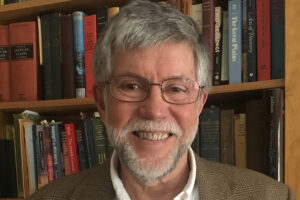
Fields, who joined the faculty of Arts & Sciences as an instructor in 1968, has been an influential, award-winning teacher and has held a series of key leadership appointments.
From 1987-1992, he served as acting chair and then chair of the Department of English. He was director of the Master of Liberal Arts program from 1986-1992 and dean of University College, the professional and continuing education division of Arts & Sciences, from 1992-96.
In 1996, he became founding director of the American Culture Studies program, which he led until 2008. In 1999, he was named the university’s inaugural Lynne Cooper Harvey Distinguished Professor. He served as founding director of the John C. Danforth Center on Religion and Politics from 2010-11. From 2011-12, he served as part of the transitional leadership team for Arts & Sciences, following the death of his close friend Dean James E. McLeod.
A nationally known expert on American literature, rhetoric and nonfiction prose, he has written a memoir, “What the River Knows: An Angler in Midstream” (1990), a highly acclaimed nonfiction book about fly fishing, the mysteries of rivers and the uncertainties of life’s second half; and “The Past Leads a Life of Its Own” (1992), a collection of stories that capture a simpler life of growing up in the American heartland.
His book “Union of Words: A History of Presidential Eloquence” (1996) examined the use of rhetoric in presidential speeches, from declarations of candidacy to nomination acceptances, inaugural addresses, state-of-the-union speeches and other special addresses. He has been frequently called on by national and international media to provide expert commentary regarding the use of rhetoric as a political or social tool.
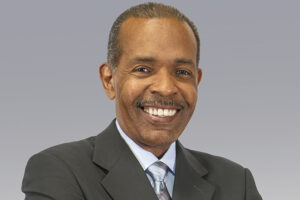
Madison has built a legacy of using his voice for those without one. His radio program, “The Joe Madison Show,” airs nationally weekday mornings on SiriusXM’s Urban View channel 126. During his four-hour program, Madison, also known as “The Black Eagle,” talks about political and social issues, brings attention to social injustices around the world, and challenges himself and his listeners daily to “do something about it.”
Named one of Talkers magazine’s 100 Most Important Talk Radio Hosts nine times, often in the top 10, Madison has interviewed world leaders, including President Barack Obama, among other notable guests.
A sociology major at Washington University, he was an all-conference running back on the football team, a baritone soloist in the university choir and a disc jockey at the campus radio station. He earned a bachelor’s degree in 1971, the first in his family to do so.
He has not forgotten the opportunities he received as a student and continues to give back to his alma mater. A member of the William Greenleaf Eliot Society, he has generously supported scholarships, athletics and the Gephardt Institute for Civic and Community Engagement. For the past two decades, he has interviewed potential students for the admissions office.
He has brought international attention to human rights abuses in southern Sudan and helped free 7,000 Sudanese being held as slaves. In February 2015, he set a Guinness World Record at 52 hours for the longest on-air broadcast, raising more than $250,000 for the Smithsonian’s National Museum of African American History and Culture. In June 2015, he made history again by broadcasting live from Cuba, becoming the first American radio host to do so in more than 50 years.
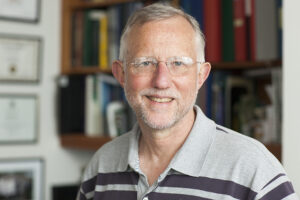
Rice, who is considered one of the world’s most accomplished virologists, made seminal discoveries about the hepatitis C virus that helped transform infections with the virus from deadly to curable.
Tens of millions of people worldwide are infected with hepatitis C virus, and about 20 percent of them will go on to develop life-threatening liver cancer or cirrhosis. Soon after the virus was discovered in 1989, Rice, then an assistant professor of molecular microbiology at Washington University School of Medicine and an expert in the related yellow fever virus, turned his attention toward it.
The virus doesn’t grow under conventional laboratory culture methods, so one of Rice’s most critical contributions involved finding a way to grow it in a dish. This breakthrough made it possible for him and other researchers to study how the virus infects liver cells, multiplies and causes disease. He also helped create a clone of the virus and used it to identify promising drug targets and test investigational drugs.
His work led to highly effective drug combinations that went on the market in 2013 and are credited with saving hundreds of thousands of lives.
Rice joined Washington University’s School of Medicine faculty in 1986 and served as interim head of the Department of Molecular Microbiology from 1993 to 1997. He left in 2001 to direct the Laboratory of Virology and Infectious Disease at The Rockefeller University and become the founding scientific and executive director of the Center for the Study of Hepatitis C in New York City, positions he still holds.
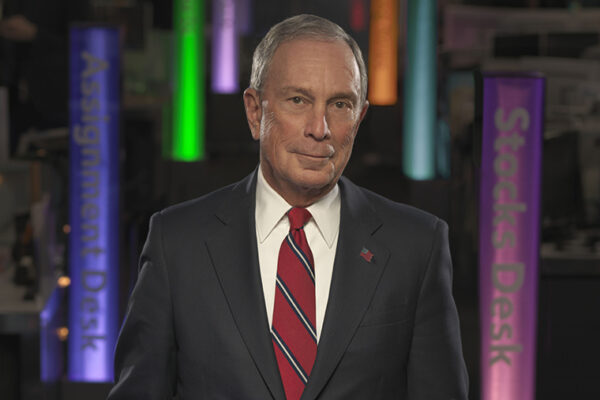
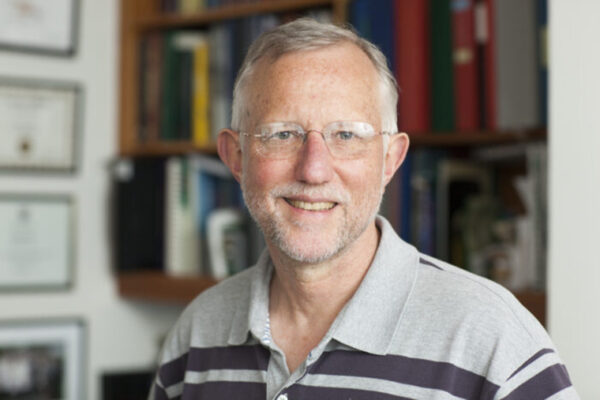

Comments and respectful dialogue are encouraged, but content will be moderated. Please, no personal attacks, obscenity or profanity, selling of commercial products, or endorsements of political candidates or positions. We reserve the right to remove any inappropriate comments. We also cannot address individual medical concerns or provide medical advice in this forum.